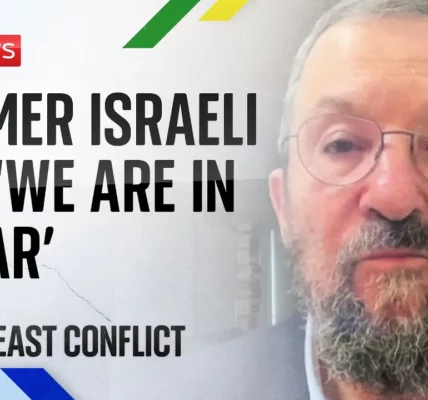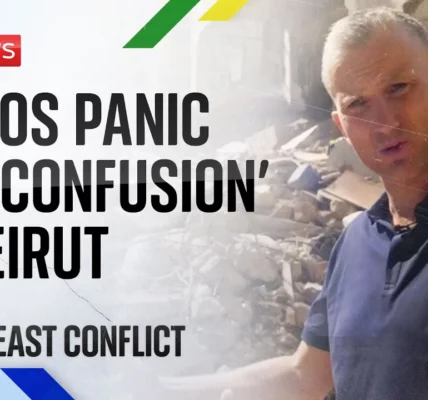Dreaming of Better Fortunes: Migrants on the Road from Mexico to the United States

This article delves into the harrowing journey of migrants traveling from Mexico to the United States, discussing the dangers they face, the political implications, and personal stories that highlight the human aspect of this ongoing crisis.
Introduction
The journey from Mexico to the United States has become a perilous endeavor for many migrants seeking a better life. Spanning approximately 1600 miles, this route is fraught with danger and uncertainty. As families and individuals from diverse backgrounds converge on this path, their hopes for a prosperous future are often met with harsh realities. This article explores the multifaceted aspects of migration, featuring personal narratives, political considerations, and the humanitarian implications of this ongoing crisis.
The Migrant Experience
Among the stories that exemplify the struggle of migrants is that of a 14-year-old boy named Edgar. Traveling alone, he embarked on a dangerous journey from Venezuela to Washington, D.C., seeking to reunite with his mother. Edgar’s experience is not unique; many migrants are driven by desperation and the desire for a better life.
Edgar’s Journey
Edgar’s journey began in Colombia, where he faced numerous challenges. After losing his grandmother, he found himself alone and vulnerable on the road. His mother advised him to turn himself in to authorities in hopes that legal assistance could facilitate his entry into the U.S. This heartbreaking decision underscores the precarious situation many young migrants face.
Family Separation and Desperation
- Separation from family members
- Danger of trafficking and kidnapping
- Lack of resources and support
Many migrants, like Edgar, are separated from their families, which exacerbates their vulnerability. They often fall prey to gangs and traffickers, highlighting the need for comprehensive immigration reform that prioritizes the safety and well-being of these individuals.
Political Implications of Migration
The migration crisis has become a heated topic in U.S. politics, particularly with the upcoming presidential elections. Both major political parties have pledged stricter immigration controls, which raises concerns about the future of migration policies.
Impact of Political Rhetoric
Political narratives often paint migrants in a negative light, depicting them as threats rather than individuals seeking refuge. This rhetoric not only affects public perception but also influences policy decisions that can either facilitate or hinder the migration process.
Election Year Concerns
As the election approaches, many migrants express urgency in reaching the U.S. before potential policy changes take effect. The fear of increased border enforcement drives many to undertake this dangerous journey, highlighting the intersection of politics and human rights.
Humanitarian Efforts and Challenges
The role of humanitarian organizations is crucial in addressing the needs of migrants. However, the challenges are immense, as evidenced by the growing number of individuals attempting to cross the border illegally.
Role of International Organizations
Organizations like the International Rescue Committee are working to provide aid and support to migrants. They emphasize the need for global cooperation to manage migration effectively and humanely.
Challenges Faced by Humanitarian Groups
- Limited resources and funding
- Political resistance to accepting migrants
- The rising number of individuals in need
Despite their efforts, humanitarian groups face significant obstacles, including political resistance and resource limitations. This underscores the urgent need for comprehensive immigration policies that address the root causes of migration while providing adequate support for those in transit.
Conclusion
The migration crisis from Mexico to the United States is a complex issue that requires urgent attention and action. Personal stories like Edgar’s highlight the human cost of this crisis, while political implications continue to shape the future of migration. It is essential for governments and organizations to collaborate in creating humane and effective solutions that prioritize the safety and dignity of all migrants.
To learn more about how you can support migrants and advocate for humane immigration policies, visit our related articles section.
“`




